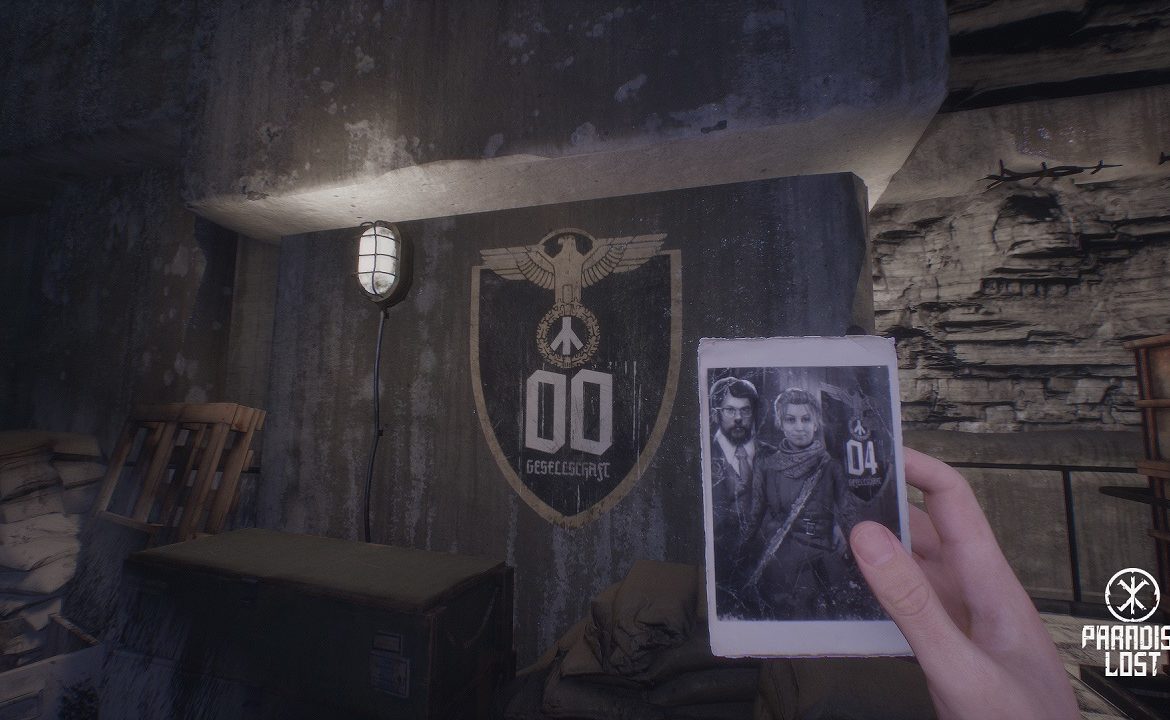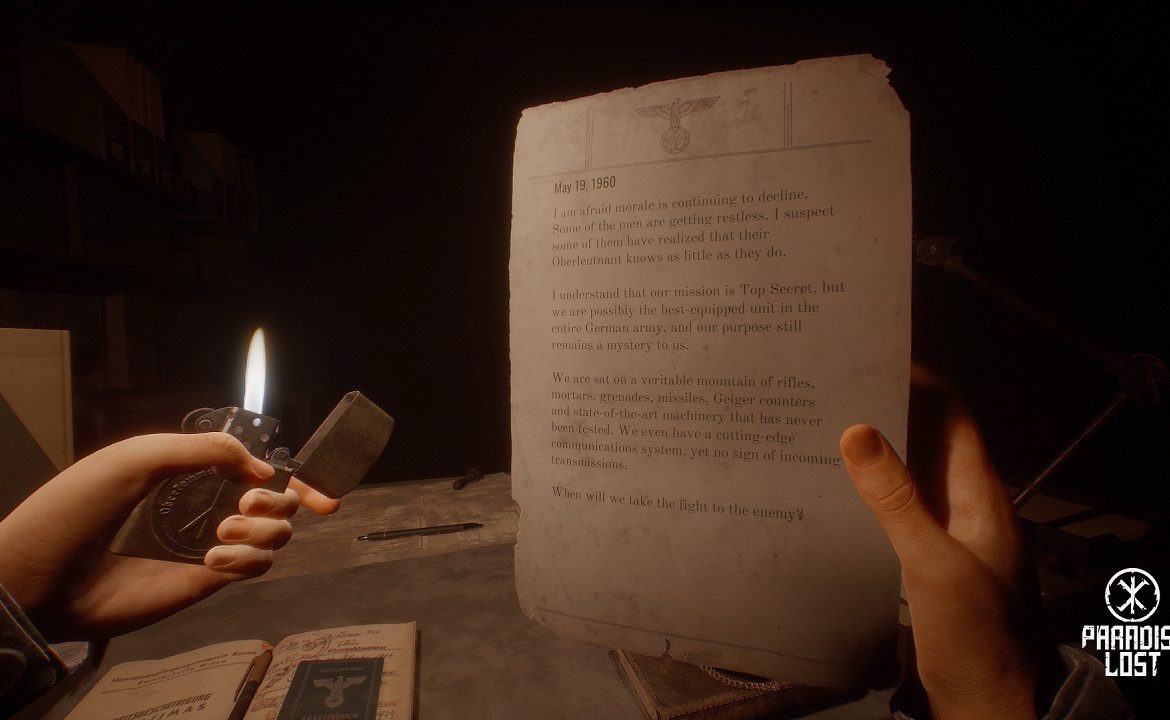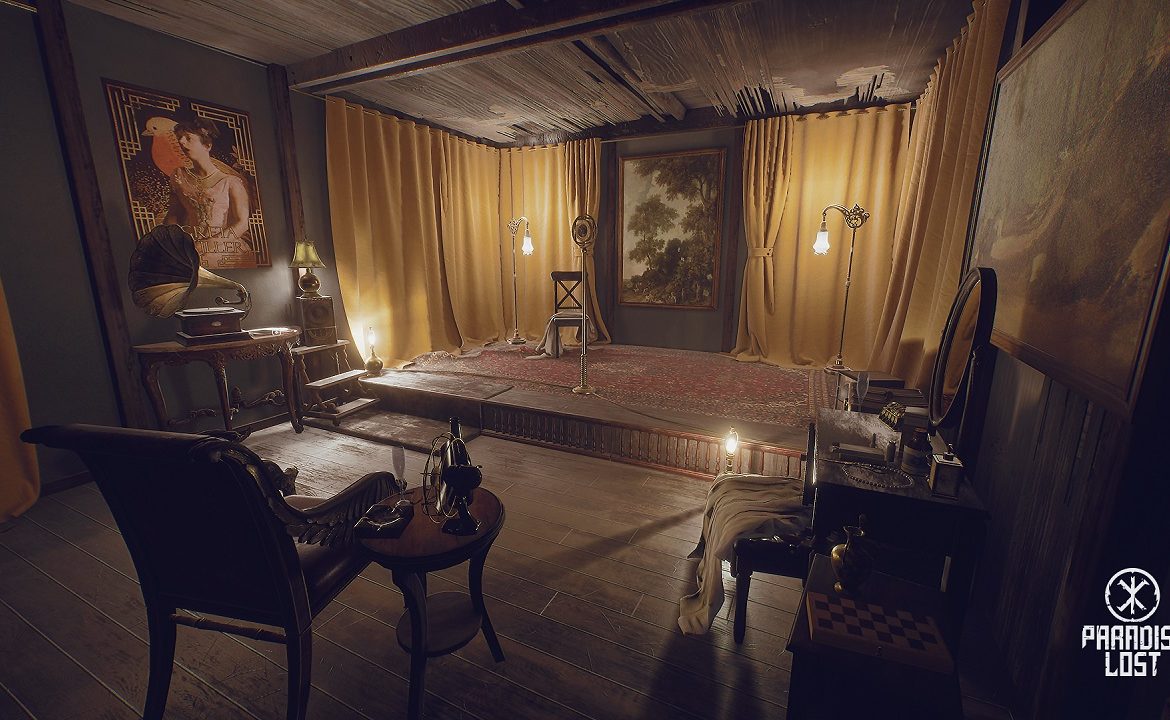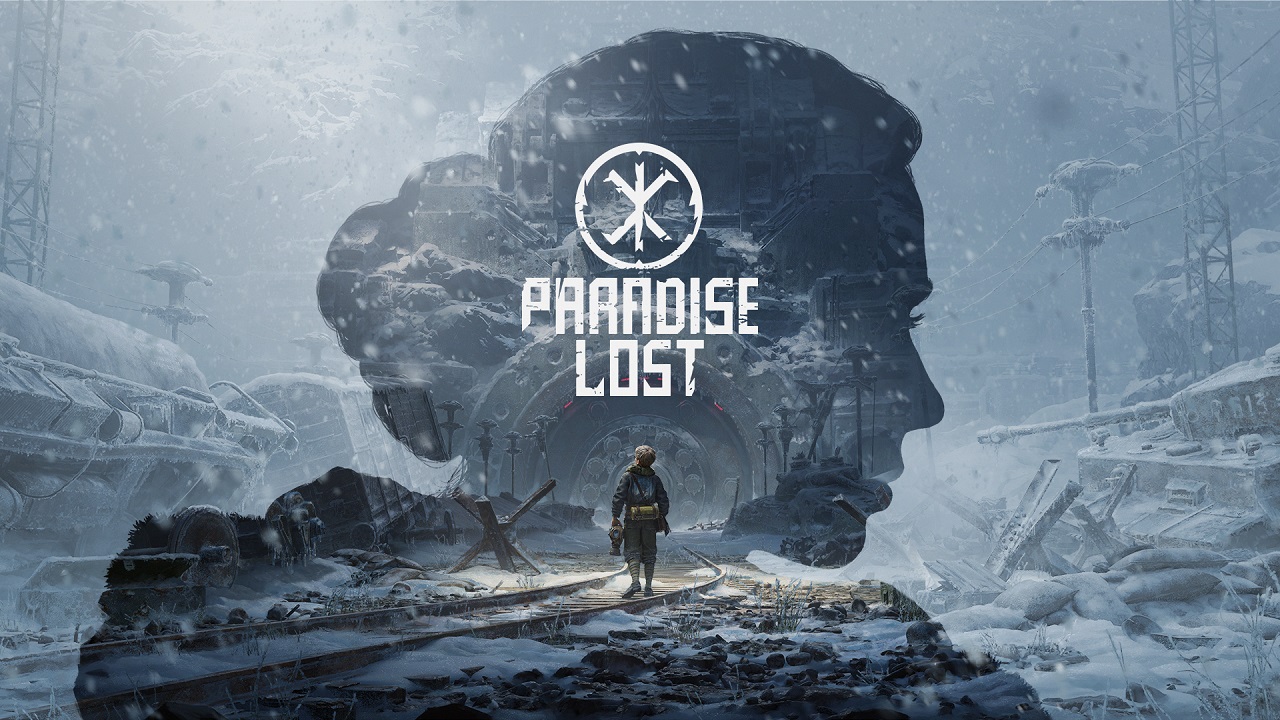Paradise Lost Review (Xbox Series) – Blind Walkthrough
Paradise Lost? No, just hidden in darkness. There’s a compelling story here…if you can see it. The Finger Guns review.
I have something of a funny love-hate relationship with walking simulators. I’d tell you all day long that Firewatch is a top 5 game of all-time. What Remains Of Edith Finch might have a shout for top 20. I also maintain soft spots for the likes of Virginia and Gone Home. Yet, some of the flagships titles in the genre – the likes of Dear Esther and Everybody’s Gone To The Rapture – have left me cold. However, few walking simulators have had a premise that intrigued me quite as much as Paradise Lost, a post-apocalyptic mystery from developers PolyAmorous.
You play as Szymon, a young boy in search of answers in a frozen post-apocalyptic wasteland. So far, so standard, but the twist here is that the year is 1980, and we’re in an alternate history where the Nazis didn’t lose World War II. Coming across a spookily abandoned Nazi bunker, Szymon quickly realises there are not just answers, but a lot of new questions as well. For instance, who is the mysterious disembodied voice guiding you along the way? Or what was your mother hiding from you about your father?

These answers are more often than not presented to you through exposition – namely the conversations you have with that mysterious voice or the audio logs you happen across – or the written word, which you’ll find on memos, notes and torn-out book pages dotted around the environment.
I’ll stop short of spoiling any of the major story elements of Paradise Lost, but what I can is that – in reading and listening – you’ll also find some of the blanks filled in with regards to what was happening in that bunker. As you might expect, given it’s a bunker previously occupied by one of the most evil factions the world has ever seen, most of the details you’ll find are truly horrifying in nature. This is made all the bleaker when you know things like this likely happened in real life. As such, it’s a pretty sobering affair throughout.

As for how the game plays, Paradise Lost presents something of a mixed bag here. Even for a walking simulator, the pace of movement can most generously called ponderous, but – more often than not – felt glacial, particularly when navigating some of the bunker’s longer or larger areas. I’m not suggesting for a second that you should be able to sprint around like a Pilot from Titanfall, but given the game does provide for some light exploration off the beaten path, a little more spring in the step would have been appreciated at times.
There’s plenty to interact with in Paradise Lost, with things to pick up and look at that act as the game’s attempts at environmental storytelling. Whilst some of it seems mainly pointless and interactive for the sake of it (I’d personally have been happy for a single button press to be required to open doors and drawers), some of what you’ll find seems a little more poignant or even sinister, depending on your perspective – take, for example, the button in an office that reveals a secret room where the inference is that secret musical performances have been taking place, even if it isn’t clear that both parties were happy with this arrangement. It all adds a little dash of much-needed flavour.

However, this brings me to my main problem with Paradise Lost, although I’d like to think it’s one that can be rectified post-launch. It is an exceptionally dark game – and I don’t mean the subject matter. It is often incredibly difficult to see the environment around you in the game’s more poorly lit areas. At times, that’s alleviated by Szymon making use of a lighter to illuminate a small radius around him. However, most of the time, you’ll be forced to just hope that you’re heading in the right direction. Perhaps even more disappointing is the lack of graphical options to try and adjust for this – in fact, there is just one, which is a gamma setting to increase or decrease brightness. While that may sound like the ideal option to have, there is no contrast option alongside it, meaning you’re also losing some environmental detail, should you jack up the brightness enough to counteract the gloominess. Speaking of lighting, the game’s few interactive computer screens have bizarrely been made primarily light in colour, making it pretty difficult to pick out the white text.
The environments that are more brightly lit are, in fairness, nicely detailed, making the bunker feel lived in. However, where Paradise Lost truly shines in creating atmosphere is in its sound design, which is terrific. Even in the game’s quieter and more sombre moments, the sounds you hear around you – metal creaking, wind whistling through gaps, eerie echoes – mean you’re never not slightly on edge, creating a sense of dread that some more horror-focused titles could only dream of creating. Indeed, it makes curious to see what PolyAmorous can do in the horror genre – this is a pretty impressive starting point for a debuting studio.
Taken as a whole, PolyAmorous doesn’t get everything right with Paradise Lost, with some maddening technical issues too often dragging me out of potentially powerful or touching moments, but there are enough terrific little touches here that – when combined with a compelling narrative, haunting sound design and some interesting background storytelling – serve to make it worth a playthrough. Just be prepared to do a bit of squinting.

Paradise Lost is available now on Xbox Series X and S via backwards compatibility (review platform), PS4, PlayStation 5 (via BC), and PC.
Developer: PolyAmorous
Publisher: All In! Games
Disclaimer: In order to complete this review, we were provided with a promotional copy of the game. For our full review policy, please go here.
If you enjoyed this article or any more of our content, please consider our Patreon.
Make sure to follow Finger Guns on our social channels – Twitter, Facebook, Twitch, Spotify or Apple Podcasts – to keep up to date on our news, reviews and features.



